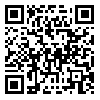Volume 17, Issue 5 (1-2019)
TB 2019, 17(5): 10-22 |
Back to browse issues page
Aeyed saeed Mazloomy Mahmoodabad 

 , Ehsan Movahhed *
, Ehsan Movahhed * 

 , Mahbobeh Ameri
, Mahbobeh Ameri 
 , Rabea Agh Atabay
, Rabea Agh Atabay 

 , Somayeh Alizadeh
, Somayeh Alizadeh 

 , Kheir Mohamad Jadgal
, Kheir Mohamad Jadgal 

 , Moradali Zarepour
, Moradali Zarepour 

 , Seyede Nafiseh Hashemian
, Seyede Nafiseh Hashemian 




 , Ehsan Movahhed *
, Ehsan Movahhed * 

 , Mahbobeh Ameri
, Mahbobeh Ameri 
 , Rabea Agh Atabay
, Rabea Agh Atabay 

 , Somayeh Alizadeh
, Somayeh Alizadeh 

 , Kheir Mohamad Jadgal
, Kheir Mohamad Jadgal 

 , Moradali Zarepour
, Moradali Zarepour 

 , Seyede Nafiseh Hashemian
, Seyede Nafiseh Hashemian 


Jiroft University of Medical Sciences , ehsanmovahed89@yahoo.com
Abstract: (2444 Views)
Introduction: Collection, secretion, and burial of waste products by scientific and economic methods are from the main problems with regard to hygiene and environment. Evaluation of the current situation and the ways that individuals, families, and industrial managers deal with this issue are basic steps towards applying the right methods in this regard. This study was carried out to predict the effective factors on the waste collection behavior in Kerman using the health belie model.
Methods: This cross-sectional descriptive survey was conducted in Kerman city in 2015. The stratified random sampling method was conducted and 400 general practitioners were selected. A researcher-made questionnaire based on the Health Belief Model was applied. The validity and reliability of this questionnaire were confirmed. Data collected using descriptive statistics, Spearman correlation coefficient, and the Kruskal-Wallis test were analyzed by SPSS version 16.
Results: The results showed that the mean age of participants was 28.12 ± 1.06 years. The benefits, severity, and perceived sensitivity had the highest means, respectively. No significant relationship was found among individuals' education, awareness, and perceived sensitivity. Considering the variables of perceived barriers, benefits, and severity, the significant level was less than 0.05. Two-thirds of the participations introduced "home" as the best place to conduct the desired behavior.
Conclusion: Perceived benefits, severity, and sensitivity were identified as the best predictors of waste collection behavior. So, in order to improve the behavior, we recommend planning based on the health belief model with an emphasis on the reduction of barriers and increase of the perceived benefits and severity.
Methods: This cross-sectional descriptive survey was conducted in Kerman city in 2015. The stratified random sampling method was conducted and 400 general practitioners were selected. A researcher-made questionnaire based on the Health Belief Model was applied. The validity and reliability of this questionnaire were confirmed. Data collected using descriptive statistics, Spearman correlation coefficient, and the Kruskal-Wallis test were analyzed by SPSS version 16.
Results: The results showed that the mean age of participants was 28.12 ± 1.06 years. The benefits, severity, and perceived sensitivity had the highest means, respectively. No significant relationship was found among individuals' education, awareness, and perceived sensitivity. Considering the variables of perceived barriers, benefits, and severity, the significant level was less than 0.05. Two-thirds of the participations introduced "home" as the best place to conduct the desired behavior.
Conclusion: Perceived benefits, severity, and sensitivity were identified as the best predictors of waste collection behavior. So, in order to improve the behavior, we recommend planning based on the health belief model with an emphasis on the reduction of barriers and increase of the perceived benefits and severity.
Type of Study: Research |
Subject:
Special
Received: 2015/11/18 | Accepted: 2016/01/9 | Published: 2019/01/15
Received: 2015/11/18 | Accepted: 2016/01/9 | Published: 2019/01/15
| Rights and permissions | |
 |
This work is licensed under a Creative Commons Attribution-NonCommercial 4.0 International License. |

